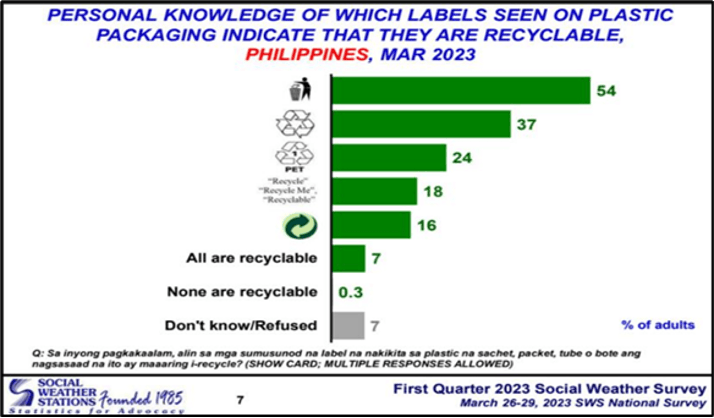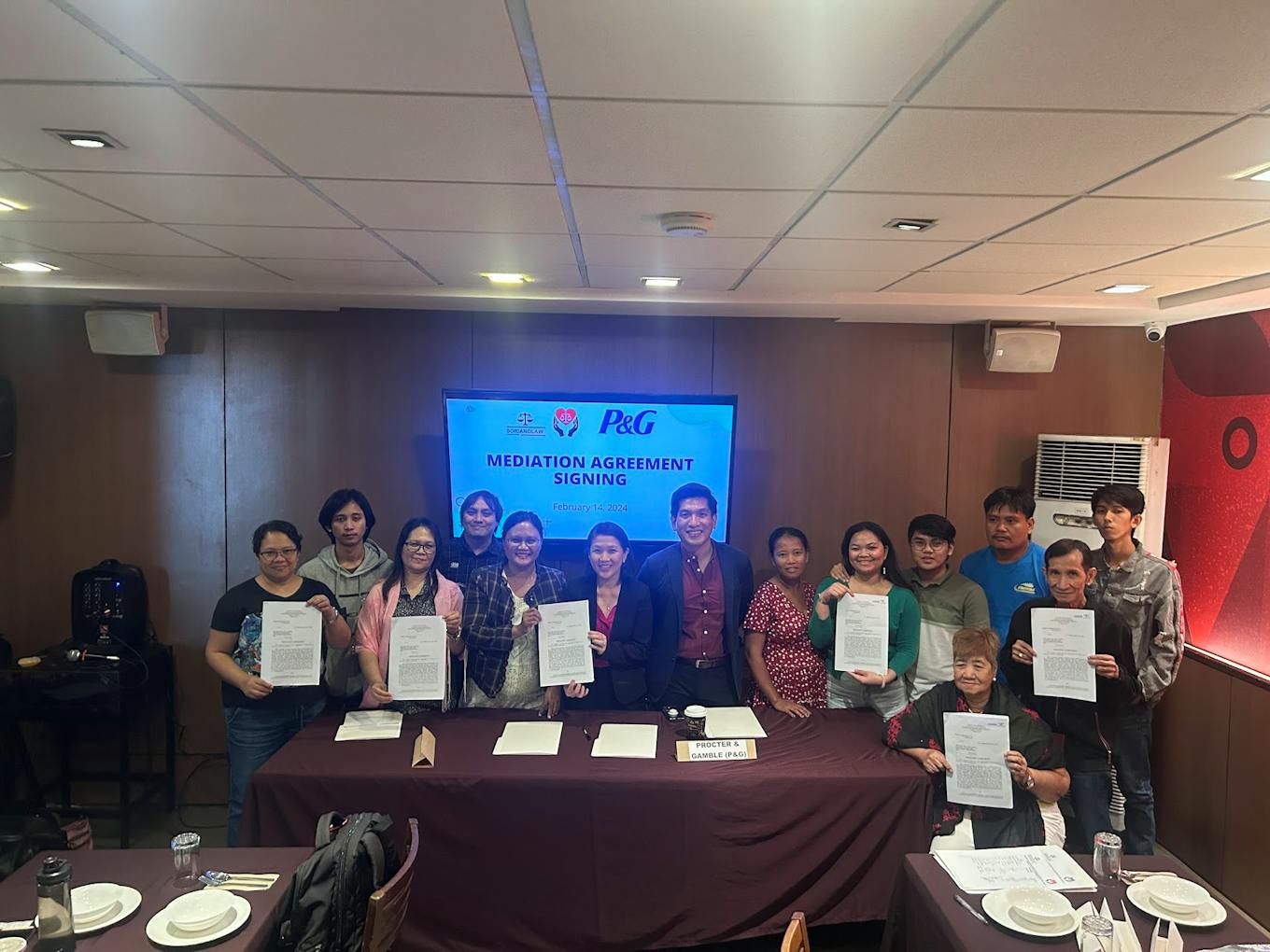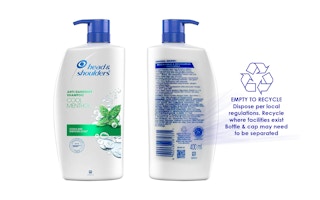The credibility of plastic recycling claims came under a spotlight in the Philippines after Procter & Gamble (P&G) made an “amicable settlement” with activists over alleged misleading labels on its packaging.
To continue reading, subscribe to Eco‑Business.
There's something for everyone. We offer a range of subscription plans.
- Access our stories and receive our Insights Weekly newsletter with the free EB Member plan.
- Unlock unlimited access to our content and archive with EB Circle.
- Publish your content with EB Premium.
The United States-headquartered consumer goods company and 32 complainants struck an agreement on 14 February to settle the case filed before the department of trade and industry’s fair trade enforcement bureau (DTI-FTEB), which regulates compliance with local laws to protect the interests of the consumer.
Only P&G agreed to enter into a dialogue with the complainants, after the case was filed against it and other consumer goods firms including Unilever, Coca-Cola, Pepsi, Nestlé, Colgate, and Universal Robina Corp in November 2022.
The complainants, which included environmental activists and fisherfolk, said that the use of recycling symbols like the mobius loop and tidy man, printed words like “recycle me,” “recyclable,” “recycle,” and “recycle ready” on the product packaging of the seven corporations is false and misleading because not all plastic is recyclable.
Some of the plastic packaging that is recyclable emits dangerous toxins, which the Philippines does not have the capacity to handle, they added.

A 2023 Social Weather Stations survey illustrates how most respondents understand that the recycling symbols and words in product packaging mean the product is recyclable. It is misleading because the entire plastic product is not recyclable and the Philippines does not have the facilities yet to recycle the parts that are recyclable. Image: Social Weather Stations
“It is wrong for the products to be labelled as recyclable when they are not, because consumers are paying an additional amount on top of the actual price for recycling the corporations’ product packaging,” said lawyer Rosiebelle Torrano from nonprofit Community Legal Help and Public Interest Centre (C-HELP), which represented the complainants. “In truth it is not recyclable. The plastic bottle will end up in the waterways, drains, rivers and seas.”
The Philippines is the world’s leading contributor to plastic pollution in the oceans, with an average of 3.30 kilogrammes per person per year, according to a 2023 study.
More than 350,000 tonnes of plastic waste enter the ocean from the Philippines annually, accounting for 36 per cent of the world’s total plastic waste.
Torrano cited a Social Weather Station survey released in March 2023 where most respondents believe that the recycling symbols and words on product packaging mean that the entire product is recyclable. It is misleading because not all of it can be recycled, and the Philippines does not have the facilities yet to recycle the parts that are, she added.
“
It is wrong for the products to be labelled as recyclable when they are not, because consumers are paying an additional amount on top of the actual price for recycling the corporations’ product packaging.
Rosiebelle Torrano, lawyer, Community Legal Help and Public Interest Centre (C-HELP)
Enrique Beren, one of the complainants, said that in the province of Bataan where he lives, he conducts quarterly beach clean-ups as part of his advocacy work as secretary-general of youth-led nonprofit YoungBean (Young Bataeños for Environmental Advocacy Network) and sees how dangerous plastic trash can be.
“In our clean-ups, we literally collect mountains of plastic trash that seem endless. This usually happens after typhoons that wash the garbage up on our shores. I am worried about how this affects our health as plastic seeps into our food and pollutes our environment,” Beren told Eco-Business.
Pablo Rosales, a fisherman from Navotas, said he was driven to file the case because the plastic bottles that are supposed to be recyclable, actually end up in the ocean and clog the propellers in his fishing boat, affecting his livelihood.
As part of the agreement, P&G said it would review recommended improvements on recycling labels based on the complainants’ suggestions. The parties will undertake bi-annual closed-door meetings this year, to hear the complainants’ solutions to reduce plastic and promote reuse and refill packaging.
“Responsible corporate behaviour”
P&G was able to settle with the complainants before the DTI could reach a decision on whether its recycling claims were indeed false. C-HELP described P&G’s actions as “responsible corporate behaviour”.
The case against the six other corporations is pending at the DTI.
Fread de Mesa, another complainant and coordinator of nonprofit 350 Pilipinas, described the agreement as “a win for communities throughout the country whose lives have been impacted by plastic pollution.”

Filipino consumers and Procter and Gamble executives enter into a mediation agreement on 14 February to amicably settle a case filed before the Department of Trade and Industry – Fair Trade Enforcement Bureau (DTI-FTEB) for alleged false or misleading advertisements and dangerous plastic packaging. The agreement was released to the media on 20 February. Image: Nadia Cruz/ 350 Pilipinas
“This situation underscores the pressing importance of corporate responsibility,” said de Mesa. “It is essential that these large corporations understand their role in the current environmental crisis and take proactive steps to mitigate the harm caused by plastic pollution. It is their duty to ensure that the products they manufacture and market do not mislead consumers about their environmental impact.
This is the second time P&G has reached an agreement with consumer groups over its environmental impact.
In 2021, P&G, along with fizzy drinks giant Coke, agreed to change its recycling labels for some products after reaching a settlement with an anti-plastic group that said the companies misled shoppers about the scope of a recycling initiative. The complainants said they were not told about the limits of its recycling scheme, which meant their waste might not get recycled.
Want more Philippines ESG and sustainability news and views? Subscribe to our Eco-Business Philippines newsletter here.










